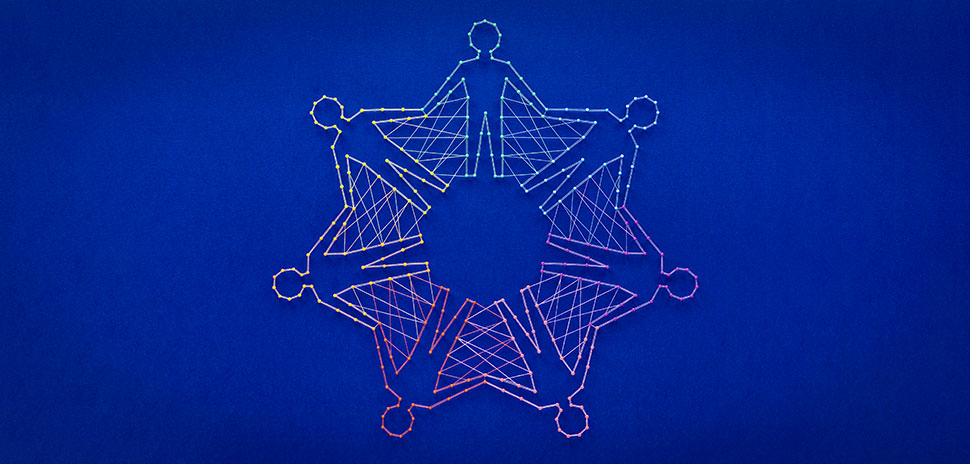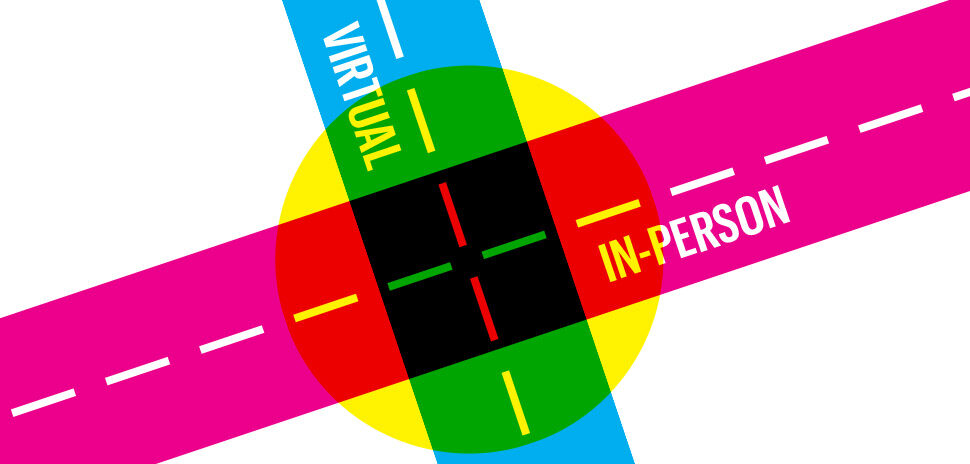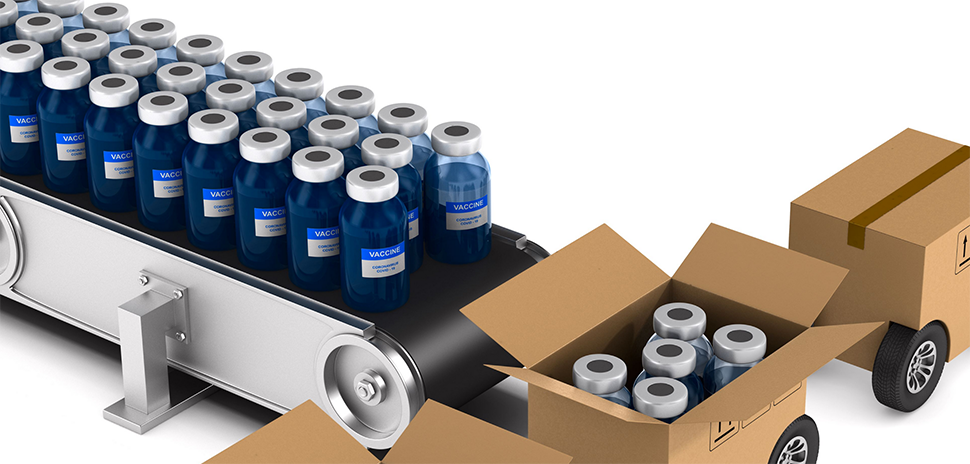There’s been no shortage of social good in North Texas during the COVID-19 global healthcare crisis.
We’ve seen a number of corporations, startups, organizations, and nonprofits step up to help those on the front line fighting the virus and those hit hardest from the effects of the pandemic (and we’ve been trying to keep up with it all).
Here’s a roundup of some companies making charitable moves recently. And if you know of one that needs to be added to the list, let us know.
You can find more dollars being donated to good during the pandemic here and here.
Toyota USA Foundation
Plano-headquartered Toyota USA has awarded $2.5 million in grants through its foundation to a number of nonprofits across the country. Each donation is intended to provide emergency COVID-19 relief related to food assistance and e-learning.
Toyota said all funds went to crucial needs in urban hot spots located where it operates. Originally, the Toyota Foundation focused on funding education only—but the auto manufacturer recognized that relief was needed most for “those suffering from food insecurity, financial hardship, and other effects from the economic disruption caused by the COVID-19 pandemic.”
“We pivoted our foundation’s focus from STEM education to support the surge in demand for food assistance across the country,” Mike Goss, Toyota USA Foundation president, said in a statement. “As we head into summer, and looking beyond, we also recognized the need to support a variety of e-learning programs with resources to expand access, engage youth and parents, and assist teachers.”
The Toyota Foundation’s national grants included $700,000 to the Salvation Army $700,000 and $500,000 to United Way. The rest of the grants were dispersed to nonprofits that address hunger in 12 different states. Locally, that included Grow North Texas, North Texas Food Bank, North Texas Food Bank, and VNA Texas Meals on Wheels.
Including the newly announced grants, Toyota has provided more than $8 million in funding and in-kind donations throughout the health crisis.
Mary Kay
The Dallas-based cosmetics giant has contributed nearly $10 million to help slow the spread of COVID-19. Its efforts are in monetary donations, product donations, and distribution support, all in the countries where it operates and communities that are in need.
Mary Kay’s subsidiaries and its four company-sponsored foundations have support relief across the globe. The funds have gone toward supporting: front line workers, domestic violence prevention and response needs, product donations, and more.
For instance, Mary Kay refocused its manufacturing efforts to produce and donate only essential items, such as personal care, hygiene products, and hand sanitizer. It gave the products to around 20 healthcare systems, 1,000 hospitals, and 1.5 million first responders, physicians, and staff.
It gave $25,000 to three local domestic violence shelters—Denton County Friends of the Family, The Family Place, and Hope’s Door New Beginning Center—to support their emergency shelter services. And, Mary Kay donated $75,000 Genesis Women’s Shelter & Support and its Conference on Crimes Against Women efforts (CCAW) in collaboration with the Dallas Police Department.
“The wide-ranging impact of this pandemic on our economies, populace and the world at large may not be truly known for some time,” David Holl, chairman and CEO of Mary Kay Inc, said in a statement “But here’s what we’re sure of right now: people are suffering, and an unprecedented crisis requires everyone’s support. It’s our responsibility to help those affected by this virus—either directly, like our frontline workers, or indirectly, like women and children impacted by the alarming uptick in domestic violence cases.”
Read more about Mary Kay’s global relief efforts here.
Leon Bridges
A native of Fort Worth, Leon Bridges was eager to help his hometown. So the Grammy Award-winning singer decided to put on a live virtual concert, all in support of Fort Worth’s Near Southside.
As reported by NBCDFW, Near Southside was hit hard economically by the COVID-19 pandemic, with retailers, restaurants, entertainment venues, and more all suffering major losses.
The concert benefited the Southside CARES Fund and Near Southside Inc, a coalition of businesses and community leaders giving relief grants to those hit hard in the area.
BOK Financial
BOK Financial Corporation, the parent company of Bank of Texas, contributed $1 million to programs addressing food insecurity and re-employment of hospitality workers that occurred as a result of the COVID-19 pandemic.
Of that money, Bank of Texas contributed $100,000 to Communities Foundation of Texas—which it has had a partnership with for several years—in support of Get Shift Done, a newly formed North Texas nonprofit created to help unemployed hospitality and service workers who have lost their paychecks during the COVID-19 crisis.
“We all know we are in unchartered territory and the amount of need is extraordinary,” Norm Bagwell, chairman and CEO of Bank of Texas and EVP of BOK Financial Corporation, said in a statement. “Get Shift Done for North Texas is assisting three critical needs in our communities by stabilizing income, providing hunger relief and assisting our nonprofit organizations.”
Bank of Texas calls this “the centerpiece of the company’s COVID-19 response, which also includes assistance for its clients and employees.”
“Supporting our community and giving back in a time of need is something Bank of Texas takes to heart,” Mandy Austin, SVP and corporate banking manager, said in a statement. “Whether it is a financial gift, volunteering our time, in person or virtually, or providing in-kind support, we feel our success is based on the success of the communities we live and work in. Our community is our livelihood.”
Lime
E-scooter rideshare Lime knows that micromobility will be vital to COVID-19 recovery across the world. Not only does this reduce emissions and congestion, but it can also help re-surge economic activity.
Lime explained its reasoning in a blog post:
Keeping cities healthy means doing our part to support health care workers, first responders and other frontline workers who are in need of safe, alternative transportation modes for essential errands. At Lime, we remain committed to supporting and connecting the communities we serve and doing our part during these unprecedented times
That’s why the company decided to roll out Lime Aid in a series of major cities across the U.S., including Dallas.
Lime Aid offers small fleets of scooters to those in need, which it hope will be an easy way to travel while social distancing. Free 30-minute rides are also available for public-health personnel and law enforcement officers.
“Lime is proud to partner with cities to provide scooters as an essential transportation option to reliably get frontline workers and residents where they need to go,” David Spielfogel, Lime’s chief policy officer, said in a statement. “We remain committed to the cities we love and serve, and we recognize the critical role of micromobility in serving transportation needs now and as we emerge from this crisis.”
Dallas Institute
The Dallas Institute of Humanities and Culture has launched a campaign to emphasize how vital schoolteachers and administrators—an “often under-noticed group”—are during the pandemic.
Through the “Thank-a-Teacher” campaign, the Dallas Institute will boster its Cowan Center for Education, which supports these essential workers. The Institute is an educational nonprofit formed to “enrich and deepen the practical life of the city with the wisdom and imagination of the humanities.”
“You no doubt have received many notices of philanthropic responses to ‘first responders’ but perhaps not to other—often overlooked—front-line workers in organizations that address those most adversely affected by COVID-19,” The Institute wrote in an email. “One such under-noticed group includes schoolteachers and administrators, under great pressure to educate their students online.”
TWU Biology
Texas Woman’s University, located in Denton, is supporting local COVID-19 testing through its Department of Biology.
TWU is supplying Denton County Public Health with 300 tubes of virus transport media (VTM) and nasal swabs for specimen collection at the county’s public health facilities. TWU said each tube passes a quality control sterility test.
The move came after the director of Denton County Public Health, Matthew Richardson, approached the Department of Biology, Juliet Spencer, professor and chair of the TWU Department of Biology, said. Richardson mentioned they were having a tough time getting supplies for testing and wondered if TWU might have them.
“This has been a group effort by the biology department, with faculty members Spencer, Brower, Lionel Faure and Amy Jo Hammett all participating in the project. They are standing by to make more supply kits as needed,” Abigail Tilton, dean of the TWU College of Arts and Sciences, said in a statement. “We are happy to be able to contribute in some small way to local management of this global pandemic.”
Mental Health for Heroes
To help healthcare workers on the front lines of the pandemic, Patterson Law Group partnered with Readiness Group to provide free crisis intervention for individuals who are feeling overwhelmed by their role.
Newly formed Mental Health for Heroes focuses on trauma intervention, bringing chaos to calm, and developing a plan for moving forward.
Starting with crisis intervention, healthcare professionals can get an initial check via HIPAA-compliant telehealth platforms. Followed by recovery—the group hopes to gain momentum raising funds—donations will go toward providing six free therapy sessions for healthcare professionals. The third tier is the sustainability of mental healthcare for the medical community to maintain some form of calm.
“Both as a law firm and generally as a community, we owe a great debt to our healthcare workers,” Travis Patterson, managing partner of Patterson Law Group, said in a statement. “The mental toll all of it must have on them is staggering, but they somehow continue to put one foot in front of the other. If they need someone to work through this fight with (which is completely to be expected), it’s our mission to support them. It’s the least we can do for these heroes.”
Support can be given through GoFundMe campaigns. Also with Taylor Counseling Group, a local service provider, the companies are establishing a network of trained therapists to provide crisis intervention responses seven days per week. Participating therapists will receive training on the culture of the medical community and how to carry out crisis intervention calls.
—Kathryn Chavez
Sando Capital Partners
Joe Sando, founder and CEO of Dallas-based privately held investment distribution company Sando Capital Partners, personally purchased masks for Dallas institutions.
Using connections in the Asian export industry, Sando located an FDA-regulated facility that switched from clothing production to mask production, and quickly made the purchase.
The masks will be distributed to UT Southwestern Medical Center (UTSW), Southwest Airlines, and Dallas-based restaurant group 8.0 Management. Currently, he is partnering with the United Way of Metropolitan Dallas to enable the purchase of additional PPE.
Advising pro bono on risk mitigation, intellectual property issues related to procuring and distributing the masks and facilitating Dallas-area corporate partnerships is the Dallas office of law firm Alston and Bird, led by attorney Sean Crain. Assisting in the effort include Brady Cox and Anna Chong, along with attorney Emily Welch of Alston & Bird’s Atlanta office and Sara Miller, an attorney in the firm’s Charlotte office.
—Kathryn Chavez
Even more forces for good
From making masks to developing new innovations to launching never-been-done-before grants, everyone seems to be doing their part.
• Clear Channel Outdoor is highlighting those who are #OpenforBusiness through digital billboards as well as its social media channels to remind DFW residents of the businesses that are still open to serve them through this tough time. Local businesses that are supplying the community with items such as meals, prescriptions, healthcare, and home goods are being featured by Clear Channel.
• Joe Fly Co. is offering cleaning solutions to help keep people safe and healthy, while preventing the spread of COVID-19. The Fly family has always been focused on providing clean air and healthy surface solutions, but now its warehouses are full of cut filter media ready to be placed inside homemade masks, and also has hand sanitizer deliveries coming in weekly.
• Newk’s Eatery has launched Newk’s Pantry as a way to offer in-demand grocery items such as produce, dairy, bread, and dry goods. These items will all be available via curbside pickup.
• Dallas-based NuVinAir Global has launched the NuVinCARES program, which will supply free products, marketing materials, and customer service to the company’s franchisees who, in turn, can assist frontline workers who are combatting COVID-19. Several franchisees have stepped up and partnered with major automotive groups to help employees of hospitals, sheriffs’ offices, and other frontline locations.
• The Slate, a coworking space located in the Design District, is using its full production studio to offer free videos to nonprofits in need of content during the pandemic. The professional grade videos can be used for social media, website, or internal communications. The Slate also has a 4k camera for recording and live streaming and professional lighting on-hand.
Kathryn Chavez and Lauren Hawkins contributed to this report.
![]()
Get on the list.
Dallas Innovates, every day.
Sign up to keep your eye on what’s new and next in Dallas-Fort Worth, every day.






























